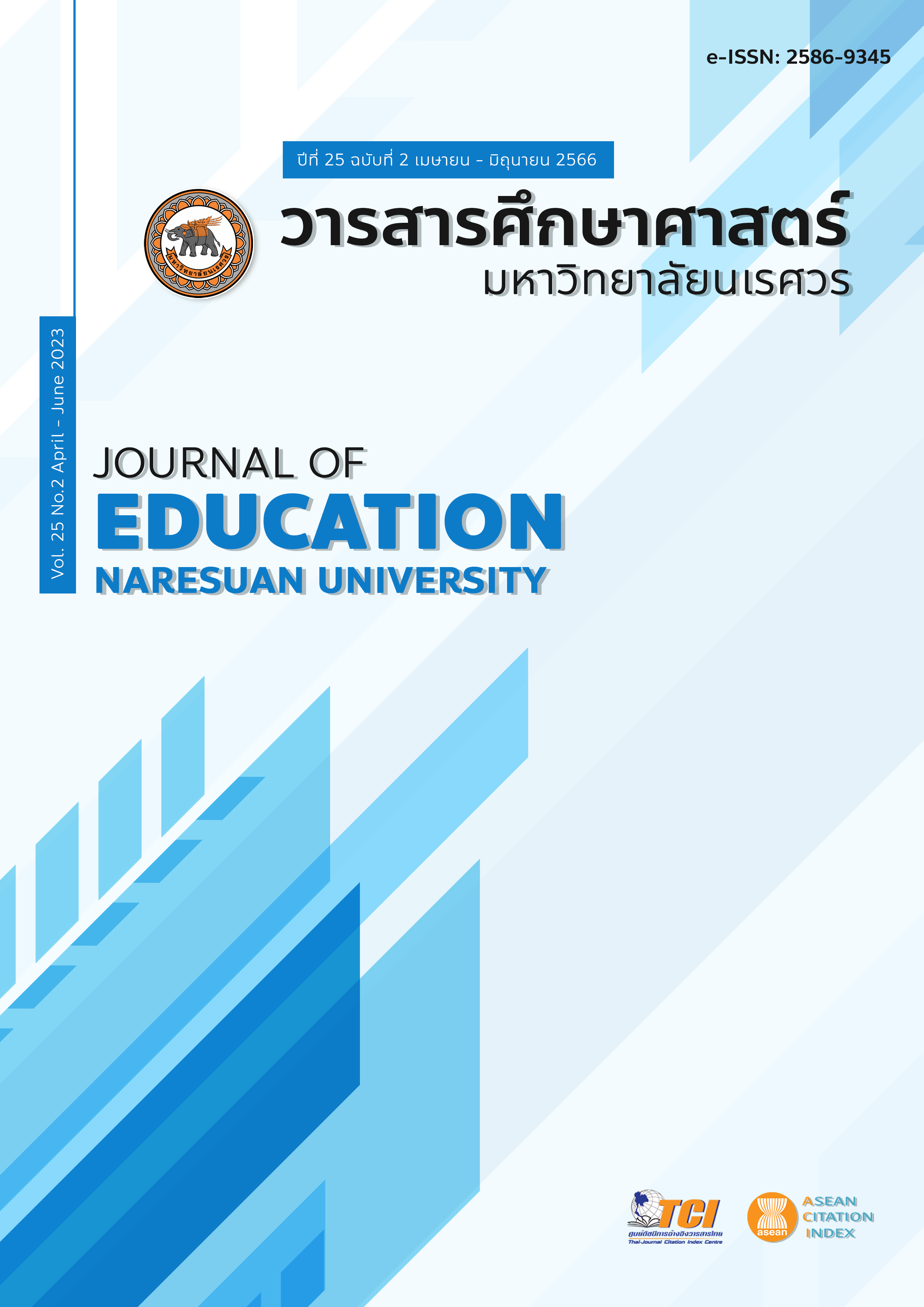THE STATE AND PROBLEMS OF PARENTS PROMOTING PRESCHOOLERS’ EMOTIONAL WELLBEING: PARTICIPATORY RURAL APPRAISAL
Main Article Content
Abstract
The purposes of this research were to study 1) the state of parents in promoting preschoolers emotional wellbeing, 2) the problems and needs of parents in promoting emotional wellbeing for preschoolers, and 3) emotional wellbeing of preschoolers. 133 parents of preschoolers in Grace Kindergarten (pseudonym) were selected as research samples. The 14 interviewees consisted of 2 school administrators, 6 class teachers, and 6 parents. The research tools consisted of a survey of community background, questionnaires, daily field notes, short notes, and interview form. All collected data was analyzed by using frequency, percentage, means, standard deviation, and statistical analysis. The research findings showed that 1) parents’ promotion of preschoolers’ emotional wellbeing was at a good level, 2) parents’ problems and needs in promoting preschoolers’ emotional wellbeing were lack of knowledge and understanding, unaware of their emotion were impacts to the child, and lack of skills in promoting emotional wellbeing for preschoolers and, 3) overall preschoolers’ emotional wellbeing was at a good level.
Article Details

This work is licensed under a Creative Commons Attribution-NonCommercial-NoDerivatives 4.0 International License.
The owner of the article does not copy or violate any of its copyright. If any copyright infringement occurs or prosecution, in any case, the Editorial Board is not involved in all the rights to the owner of the article to be performed.
References
Castro, V. L., Halberstadt, A. G., Lozada, F. T., & Craig, A. B. (2015). Parents' emotion-related beliefs, behaviors, and skills predict children's recognition of emotion. Infant and child development, 24(1), 1-22.
Department of Juvenile Observation and Protection. (2020). Annual public report on state actions fiscal year 2020. Department of Juvenile Observation and Protection.
Dunsmore, J. C., Booker, J. A., & Ollendick, T. H. (2013). Parental emotion coaching and child emotion regulation as protective factors for children with oppositional defiant disorder. Social Development, 22(3), 444–466.
Eisenberg, N., Cumberland, A., & Spinrad, T. L. (1998). Parental socialization of emotion. Psychological Inquiry, 9(4), 241-273. DOI: 10.1207/s15327965pli0904_1
Heckman, J. J. (2012). Invest in early childhood development: Reduce deficits, strengthen the economy. The Heckman Equation, 7, 1-2.
Larplai, C. (2017). Teacher profession development manual: Action research. Retrieved from https://issuu.com/chiratrachoo/docs/template_ebook Globalization
Laumka, R. (2016). Development of preschoolers physical well-being enhancement processes for parents in rural northeastern region using participatory action research and coaching approach (Doctoral dissertation). Bangkok: Chulalongkorn University.
Medizza, M., & Pearce, J. C. (2004). Magical parent magical child: The art of joyful parenting. In-Joy.
Ministry of Public Health (2018). The study of the 6th factors effecting to child development in Thailand in 2017. Retrieved from http://cgtoolbook.com/books003/7/#zoom=z
National Academies of Sciences, Engineering, and Medicine. (2016). Parenting matters. National Academies of Sciences.
National Statistical Office. (2017). A survey of the situation of children and women in 14 provinces of Thailand in 2015-2016. National Statistical Office.
National Statistical Office of Thailand. (2020). Children and women in Thailand situation survey project 2019: Summary report. Thailand National Statistical Office.
Okafor, M., Sarpong, D. F., Ferguson, A., & Satcher, D. (2014). Improving health outcomes of children through effective parenting: Model and methods. International Journal of Environmental Research and Public Health, 11, 296-311. DOI: 10.3390/ijerph110100296
Prabudhanitisarn, S. (2003). Participatory action research: Concepts and practice. Thailand Science Research and Innovation.
Wachirapraditporn, O. (2012). Cause of crimes in children and youth and proactive corrective action. Judicial Training Institute, Court of Justice.
Wilson, K. R., Havighurst, S. S., & Harley, A. E. (2012). Tuning in to kids: An effectiveness trial of a parenting program targeting emotion socialization of preschoolers. Journal of family Psychology, 26(1), 56-65.
World Health Organization [WHO]. (1998). The world health report 1998: Life in the 21st century a vision for all. World Health Organization.


